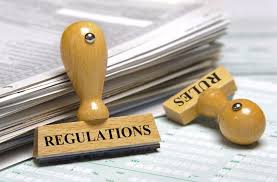
The nation’s banking regulator, the Office of the Comptroller of the Currency is proposing rules to foil efforts of big banks to refuse lending to coal and oil and gas. The proposal came months after a letter was sent to President Trump by Oklahoma U.S. Senators Jim Inhofe, James Lankford and others complaining of how the nation’s banks “unfairly picked energy winners and losers to placate the environmental fringe.”
The Office came out with draft rules on Friday that indicated banks have to base their lending decisions on whether companies meet “quantitative, impartial risk-based standards.”
“Fair access to financial services, credit, and capital are essential to our economy,” said Acting Comptroller of the Currency Brian P. Brooks in the announcement. “This proposed rule would ensure that banks meet their responsibility to provide their services fairly since they enjoy special privilege and powers because if the system fails to provide fairness to all, it cannot be a source of strength for any.”
The agency said the new rule would prevent banks from limiting fair access to banking services by preventing or limiting one kind of business to enter a particular market or “disadvantaging a person to benefit another person or interest.”
Some of the nation’s major banks such as JPMorgan Chase, Citi and Goldman Sachs expanded their policies against new coal mines, coal-fired power and Arctic drilling. Others have also limited their lending to the gun and private prison industries.
In May, Senators Lankford and Inhofe and nearly two dozen others complained of the lending discrimination carried out by banks, “we find it illogical and unacceptable that they openly discriminate against the American energy sector.”
The Sierra Club responded to the draft rules by stating, “Contrary to the claims of oil-backed politicians, banks don’t want to finance more drilling in the Arctic not because of some vast liberal conspiracy, but because it’s bad business.”
The Office of the Comptroller will receive public comments until Jan. 4 and could act to implement the rule before Biden takes office. However, the Biden administration could reverse the rule by installing its own head of the OCC.






